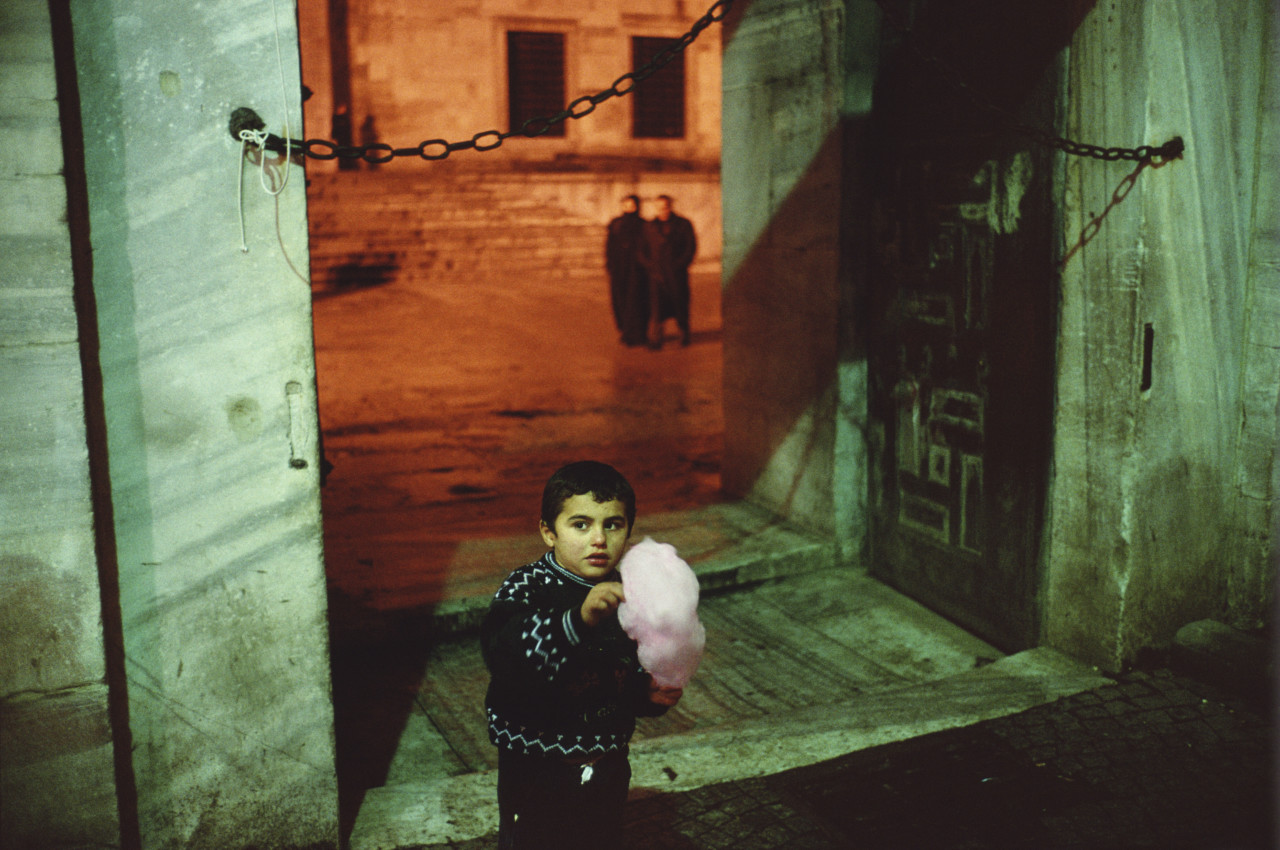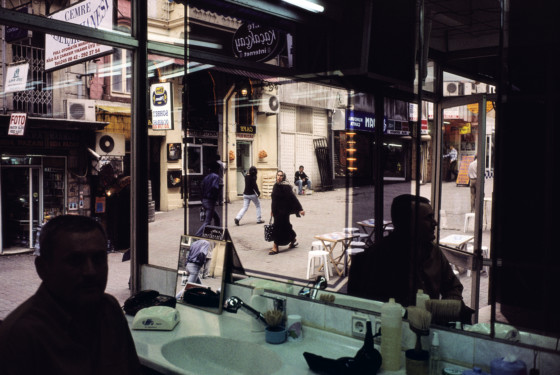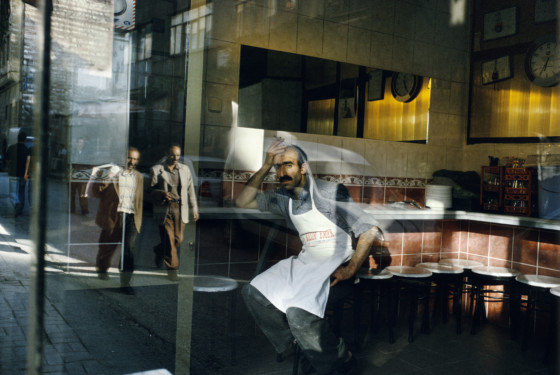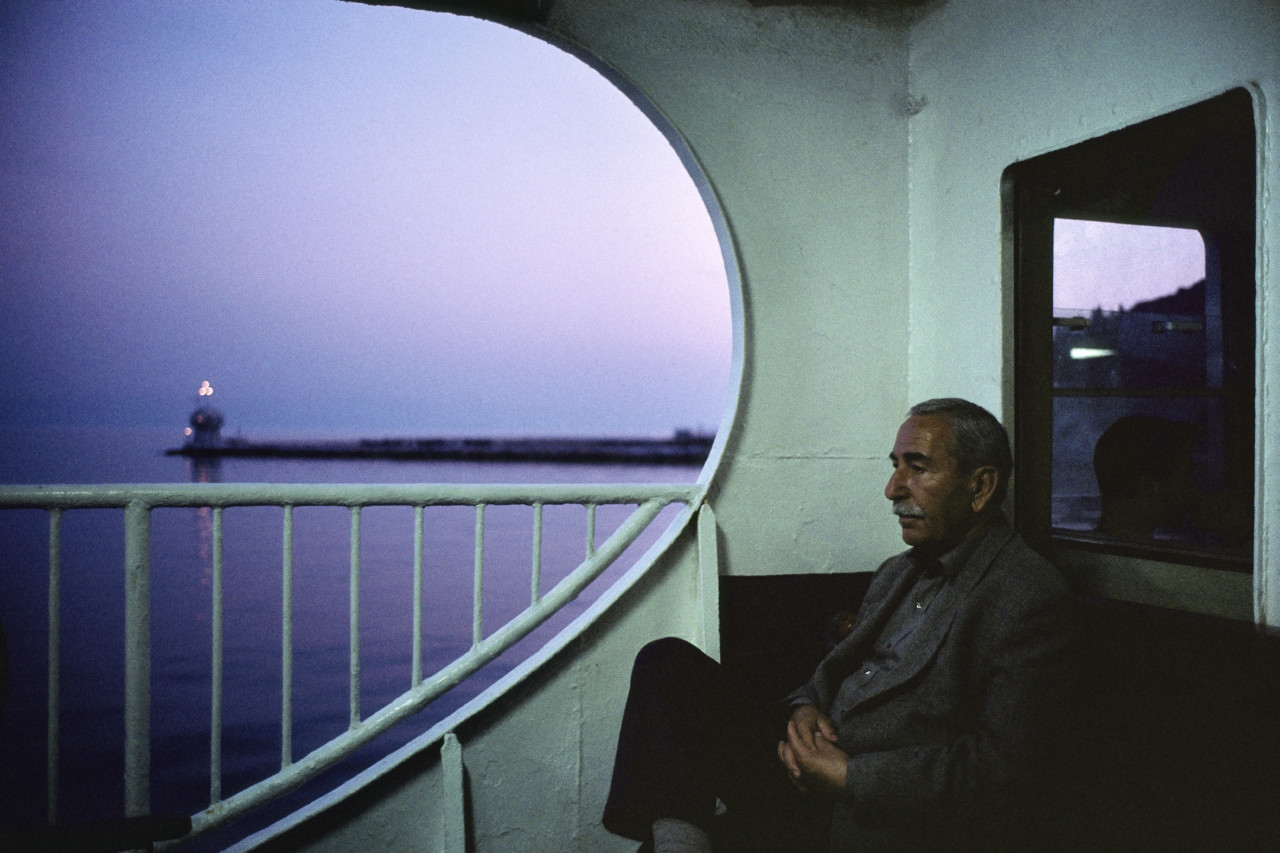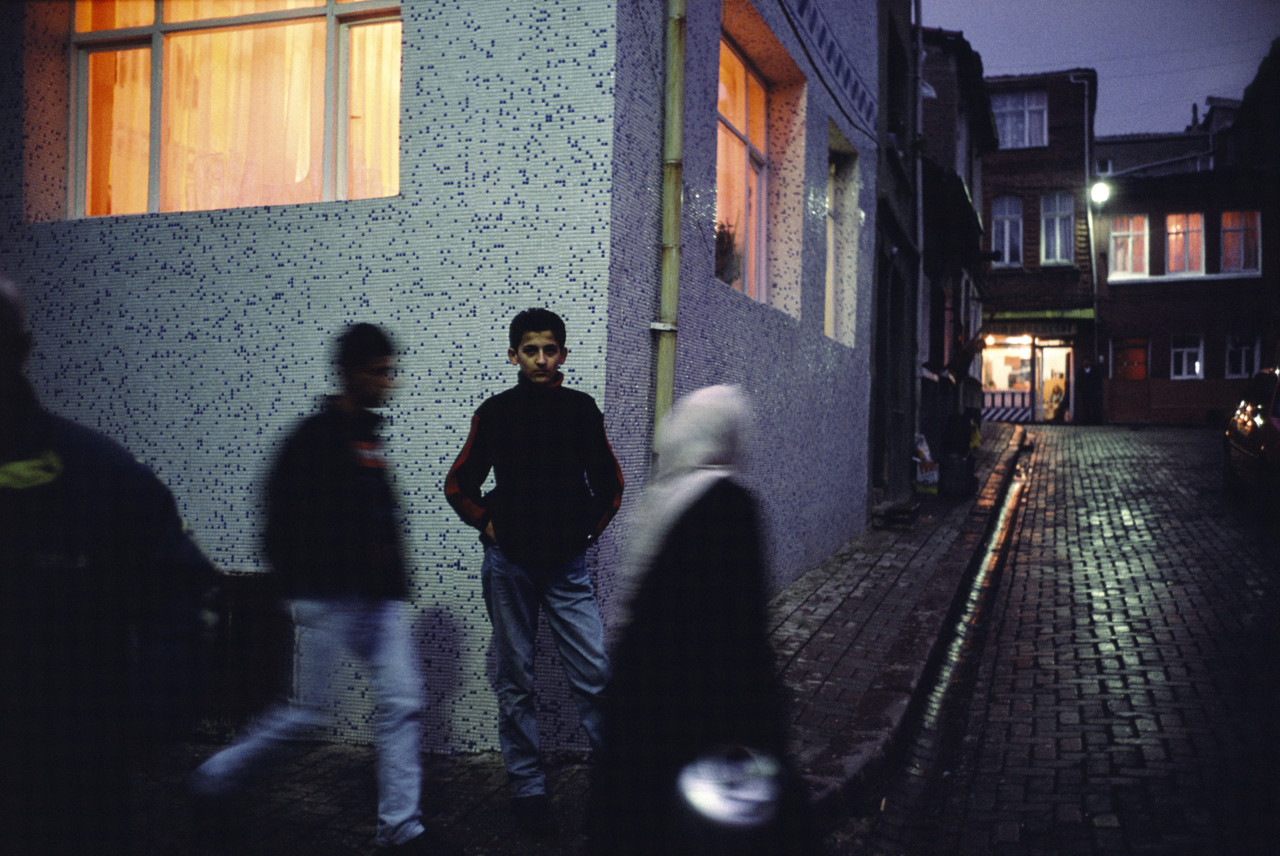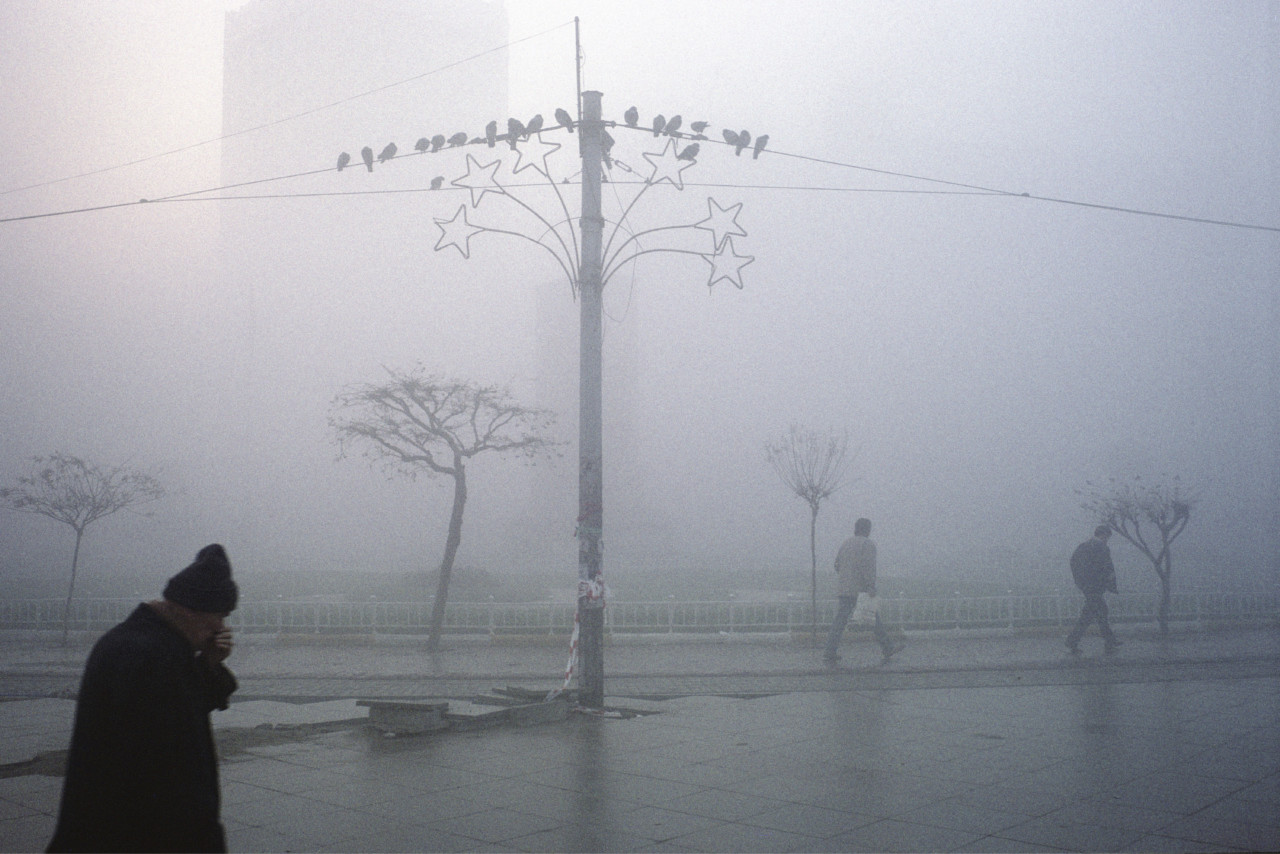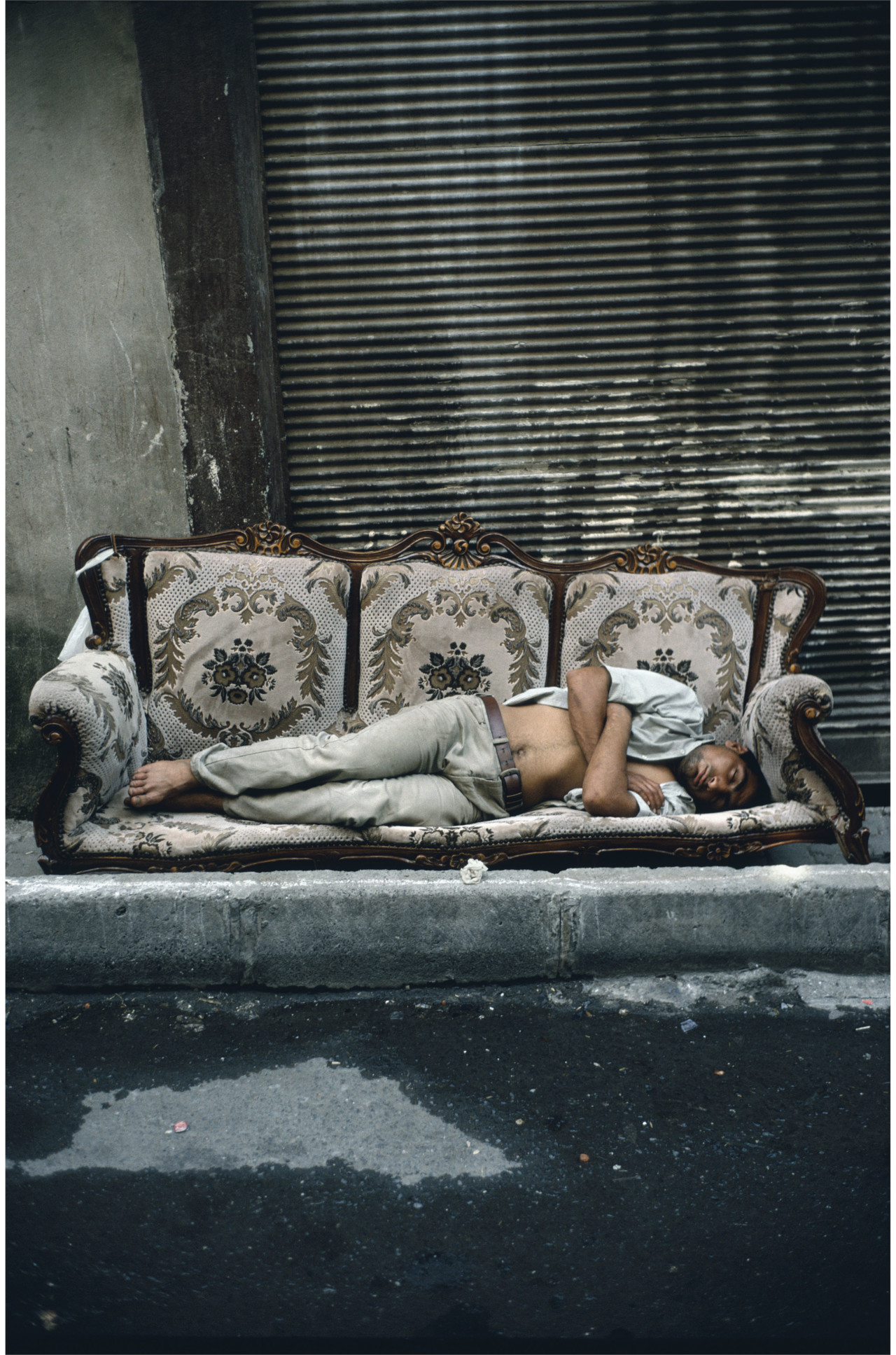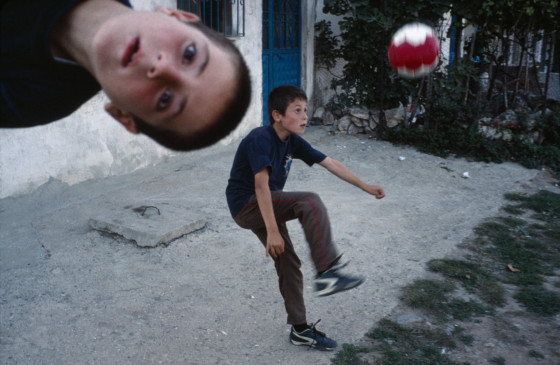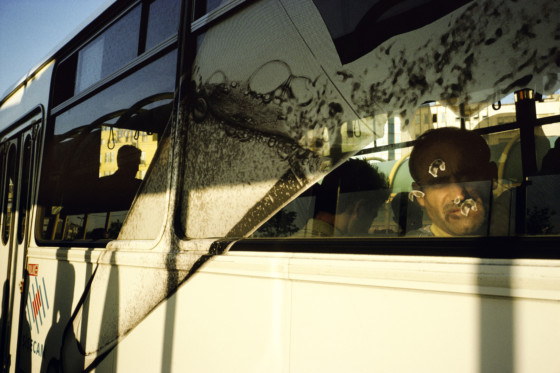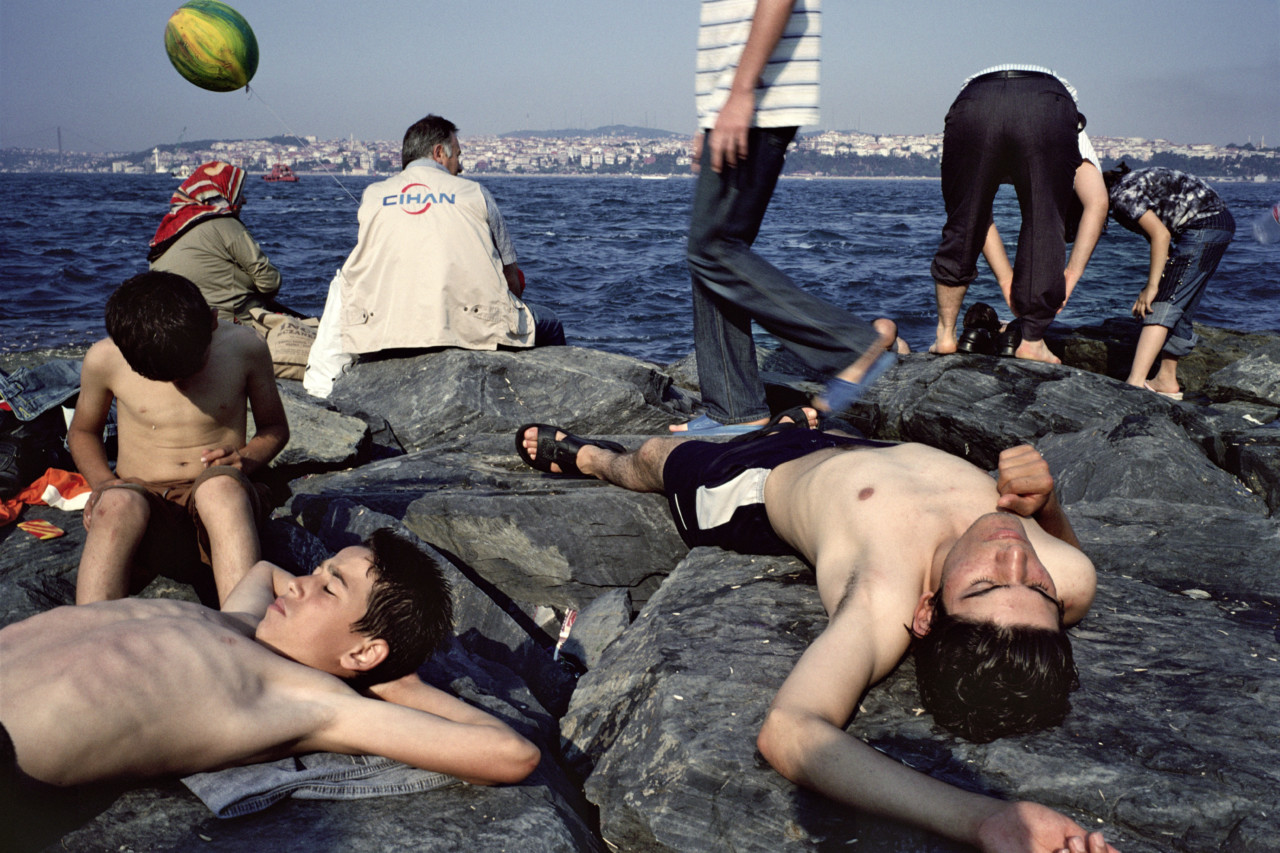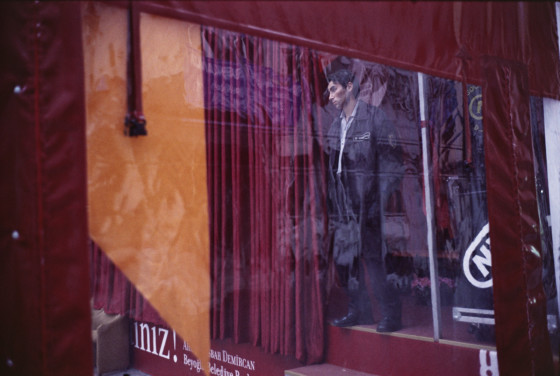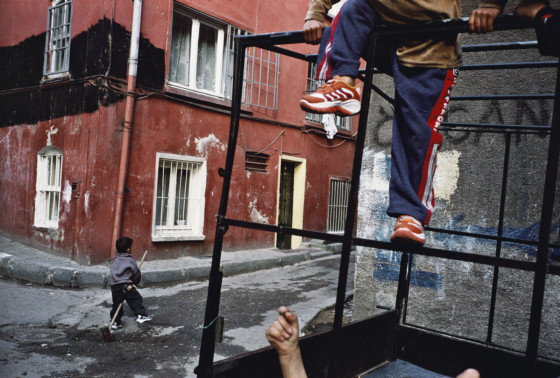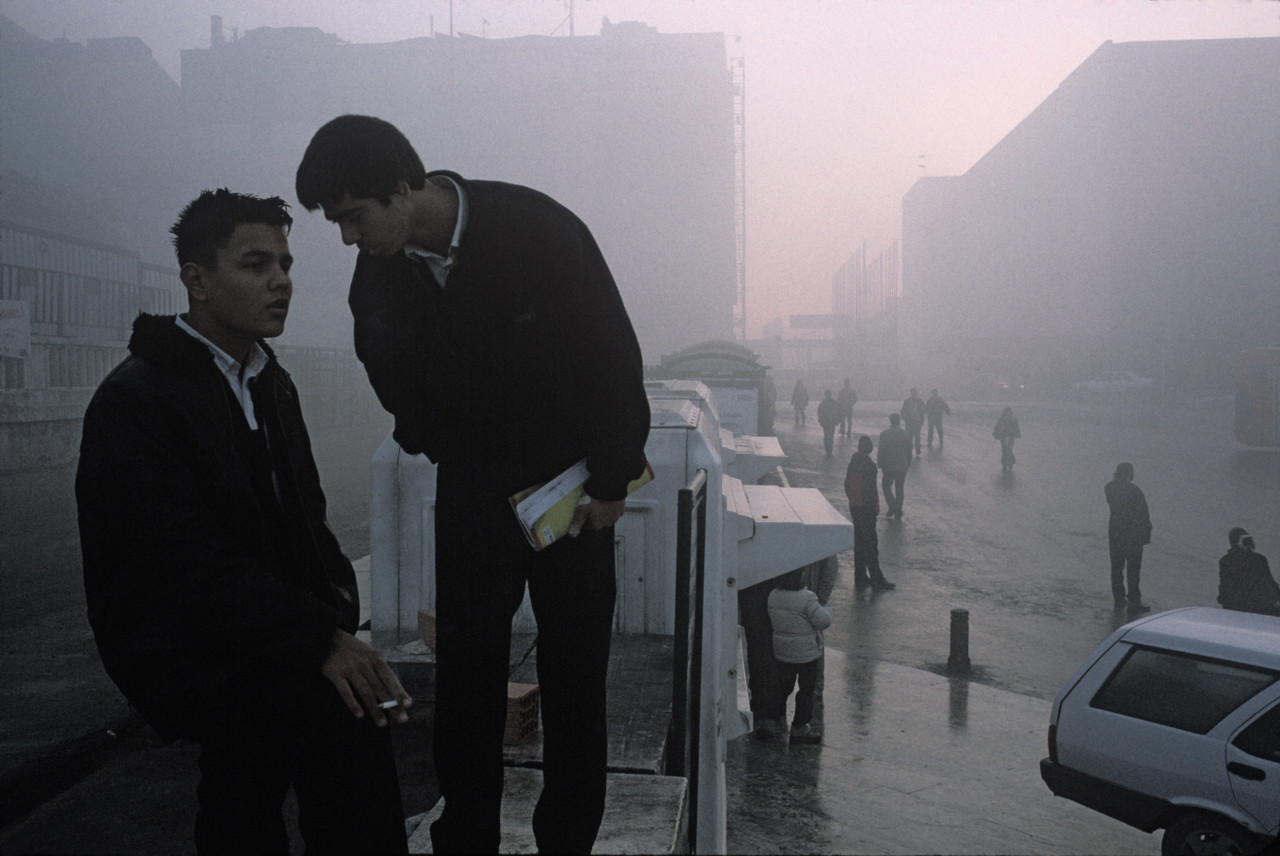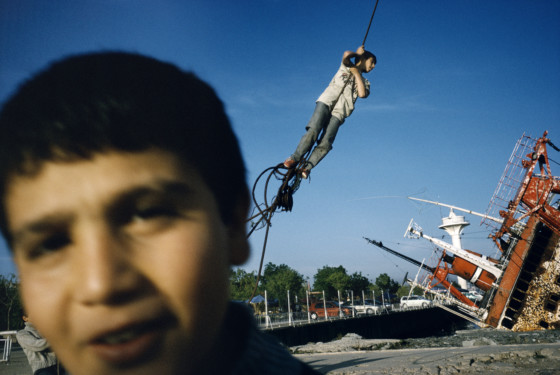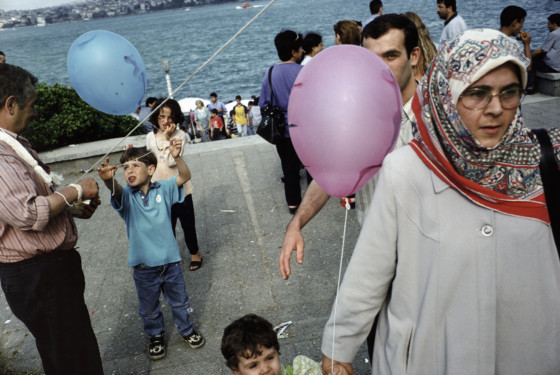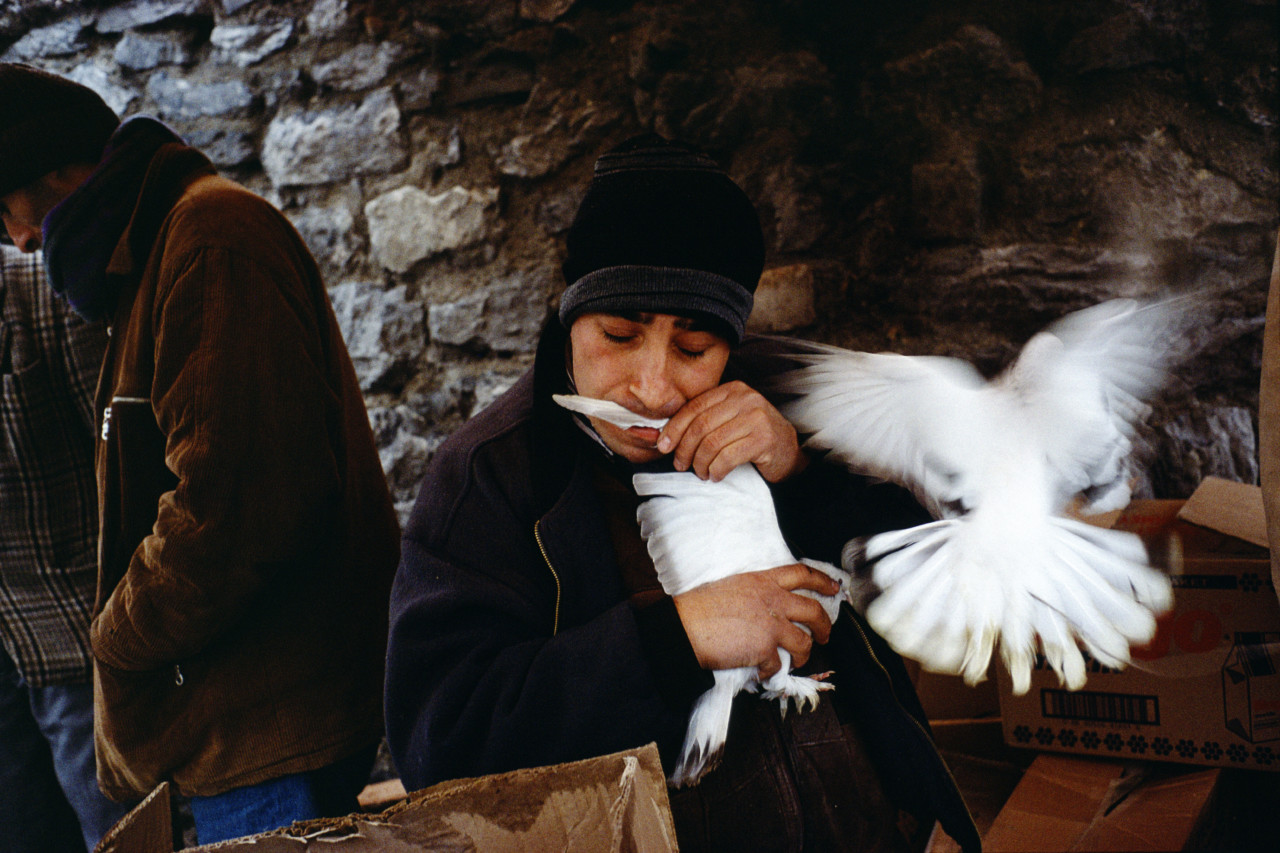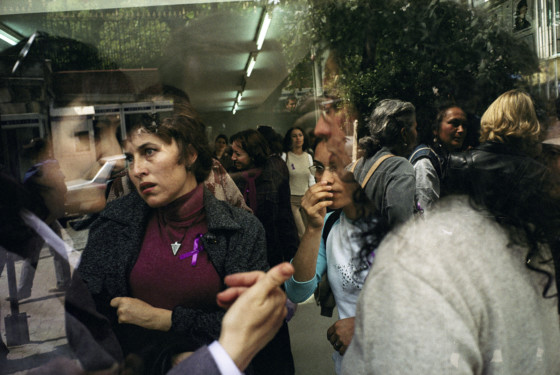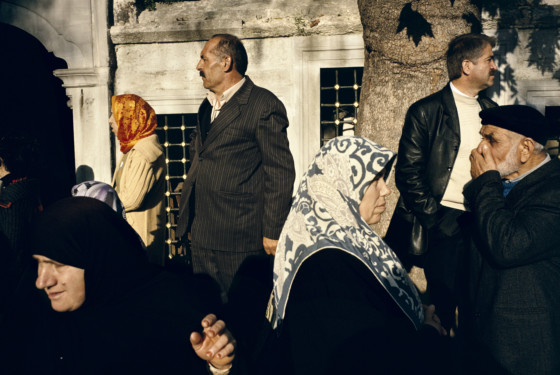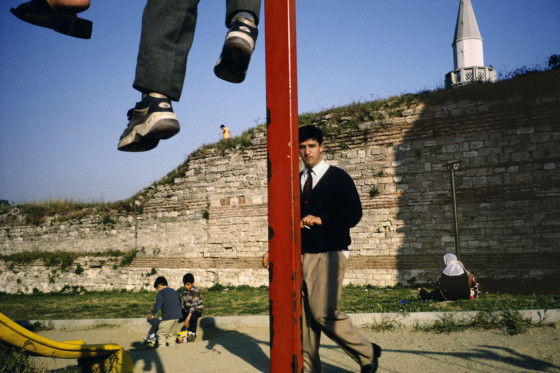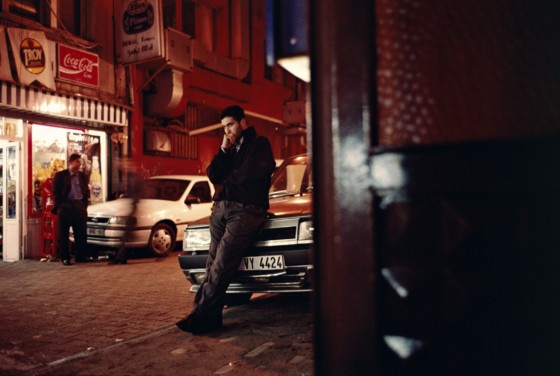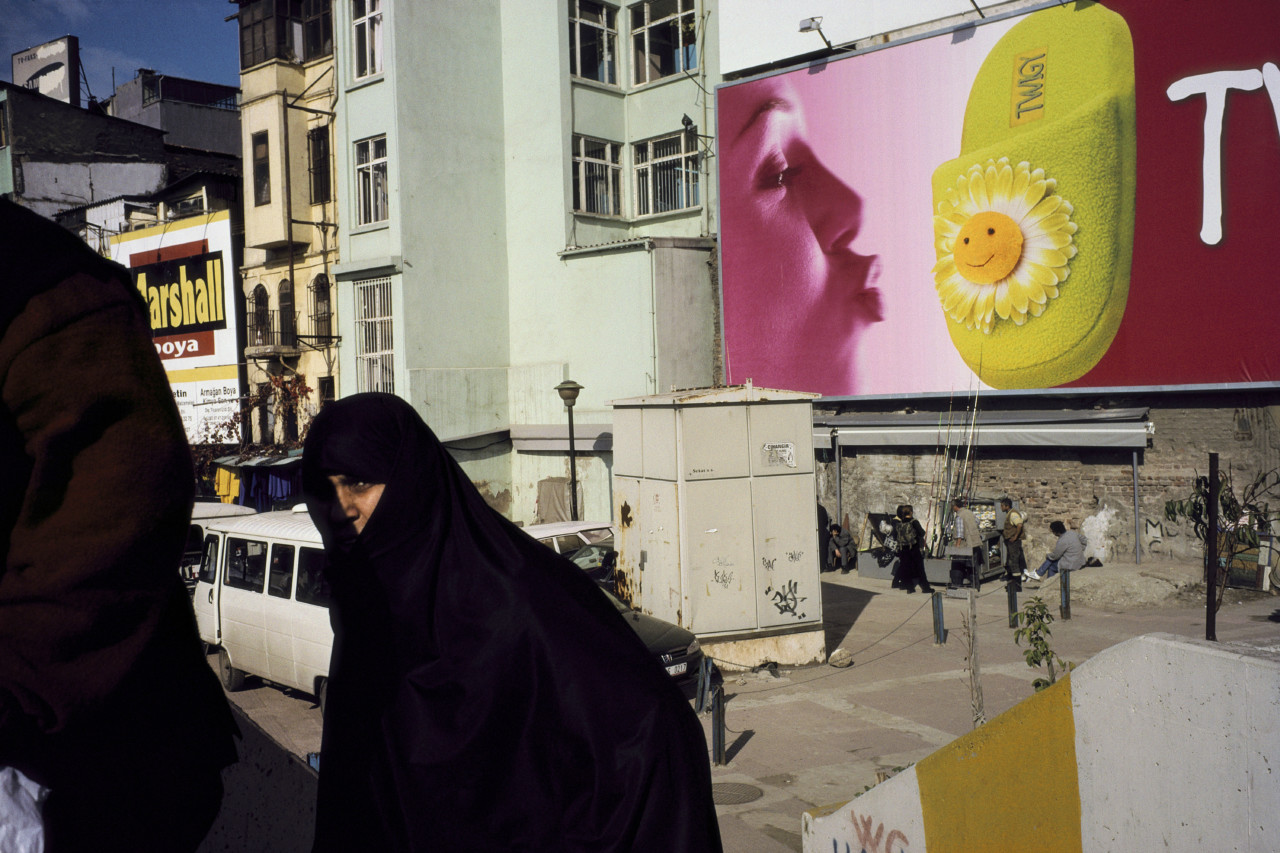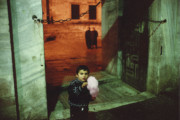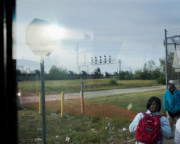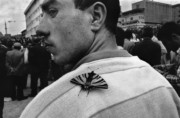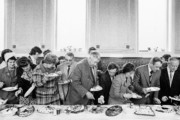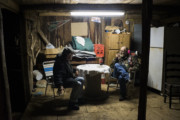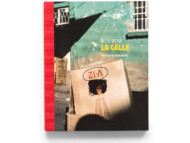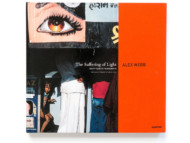Over the centuries, Istanbul’s walls have protected an unusual nexus of cultural identities. At times a beacon of progressive pluralism, the city has consistently reinvented itself, from Byzantium to Deutera Roma (New Rome) to Constantinople. Inspired by the city’s longevity and its labyrinthine streets, Alex Webb titled a photographic body of work created over several years of persistent and poetic documentation, “City of a Hundred Names.”
Webb first visited Istanbul at 16 when he attempted to capture some of the Turkish city’s excitement. Returning in 1998, he rediscovered it as a “border” city; bridging East and West, with ties to both Asia and Europe, Istanbul catered to both Islam and secularism. Webb recognized this liminal territory from his work exploring the US – Mexico border.
Over the next seven years, Webb documented Istanbul and its contrasting ideologies and cultures during a period when many hoped that Turkey would be the first Muslim majority country to join the EU. Today, the country has undergone considerable changes, its politics increasingly authoritarian and volatile under Recep Erdoğan. Yet in Webb’s book, it is possible to revisit a more optimistic time in the city’s life. Here we spoke to the photographer about his experiences in Istanbul and the inspiration he drew from the city.
When did you first go to Istanbul and what were your first impressions?
In 1968, I first visited Istanbul for a day with my family. I was 16 then, and this was my first trip outside of Europe. I remember being startled and enthralled by this unfamiliar city of teahouses and minarets. When I returned to Istanbul some 30 years later, however, I responded quite differently. Having spent decades photographing along the US-Mexico border, I was intrigued by the notion of Istanbul as another kind of border—between East and West, Islam and secularism, ancient and modern.
"I love the feel of the winding streets of Istanbul, that sense that, as a photographer, one steps out the door and every decision made that day—whether turning to the left or to the right, whether going uphill or downhill—leads to a different set of experiences."
- Alex Webb
You returned numerous times. What was it that kept drawing you back?
I love the feel of the winding streets of Istanbul, that sense that, as a photographer, one steps out the door and every decision made that day—whether turning to the left or to the right, whether going uphill or downhill—leads to a different set of experiences, and hence, a different set of images. I’ve long found the streets of Istanbul incredibly welcoming. As a stranger photographing in the streets, I was often invited into a stranger’s home for tea.
As you spent more and more time in Istanbul, what more did you discover about the country?
The more time I spent in Istanbul, the more I realized just how complicated Turkish society is—and how little I knew about what’s actually going on. For example, I did not foresee the recent disturbing developments in Turkish society, as press freedoms—already limited in Turkey— as well as individual freedoms, have been increasingly called into question.
"Istanbul is an incredibly complex place, with a deep and vibrant history that manifests itself in the present."
- Alex Webb
Why was it so rich a source of inspiration for your photography?
Istanbul is an incredibly complex place, with a deep and vibrant history that manifests itself in the present. I slowly learned to understand—at least visually—Orhan Pamuk’s notion of “hüzün,” an untranslatable word that suggests a rich and complicated melancholy that’s unique to Istanbul, the writer’s birthplace.
Have you been following the changes that have been taking place in Turkey? Would you go back now?
In retrospect, I think what I did during those seven years reflected a unique moment in Istanbul’s history, a time of increased openness in Turkey towards the west, a time when—among other things—Turkey could conceive of joining the European Union. That seems a distant possibility these days, so if I went back now I assume the work would begin to reflect a very different Istanbul.
"In retrospect, I think what I did during those seven years reflected a unique moment in Istanbul’s history, a time of increased openness in Turkey towards the west."
- Alex Webb
I have to say, once I’ve made a book about a place, I rarely return to the place with the same sense of urgency and passion that I did while working on the book. So I haven’t been thinking of returning, at least for now. That said, never say never.
See more perspectives on Turkey here.


